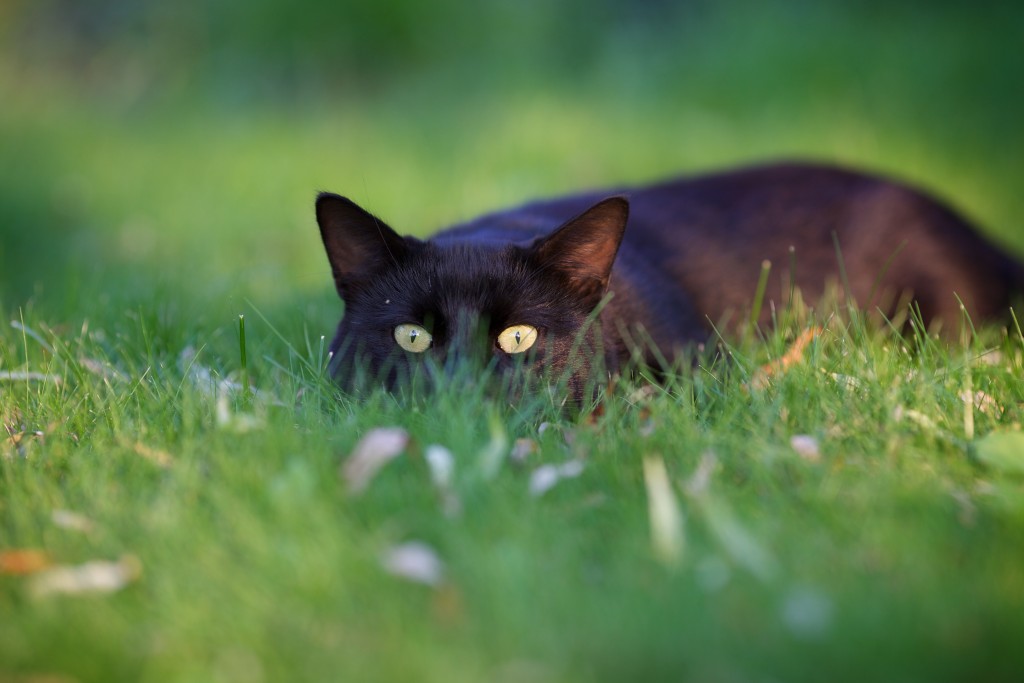© 2023 All rights Reserved.
 How do cats catch birds?
One would think catching birds would be tough. It definitely is, but cats are doing such a great job at it that some bird species are facing possible extinction. How can this be? Well, cats have three qualities that serve as their secret hunting technique. The first is stealth. Cats are notorious for being able to sneak up to any unsuspecting creature (including us). They’re very quiet, in fact they can be silent when they want to be. The second quality is their agility. They are very fast and very controlled, and they can leap three or four times their height. Talk about a vertical leap. Finally, they have extreme patience. Cats stalk their prey and wait for what can seem like eternity. Their levels of concentration is legendary. That can only be achieved if they love hunting, if hunting is in their DNA. Watching a cat catch a bird is an amazing sight. The cat is the consummate hunter.
How do cats catch birds?
One would think catching birds would be tough. It definitely is, but cats are doing such a great job at it that some bird species are facing possible extinction. How can this be? Well, cats have three qualities that serve as their secret hunting technique. The first is stealth. Cats are notorious for being able to sneak up to any unsuspecting creature (including us). They’re very quiet, in fact they can be silent when they want to be. The second quality is their agility. They are very fast and very controlled, and they can leap three or four times their height. Talk about a vertical leap. Finally, they have extreme patience. Cats stalk their prey and wait for what can seem like eternity. Their levels of concentration is legendary. That can only be achieved if they love hunting, if hunting is in their DNA. Watching a cat catch a bird is an amazing sight. The cat is the consummate hunter.
 What are the effects of this hunting?
Cats are such a danger to wildlife that a number of countries consider them to be an invasive species. Already, cats have contributed to the extinction of over 60 species of birds (as well as other animals) around the globe. So, what can be done? Unfortunately, not a lot. The fact is, most people are unwilling to take tough measures in controlling feral cat populations. The idea of euthanasia of millions of feral cats is too much for most people to bear. However, cats will continue to hunt, regardless if they are well fed. It’s not about food but rather their finely honed instinct to catch prey. It’s hardwired into them. Despite the opposition of animal rights groups and most people’s sentiments, some countries like Australia are determined to do whatever they can to reduce the feral cat population. This is where programs for spaying and neutering can get a head start. If cats can’t reproduce in the wild, their numbers will gradually decrease. There are no perfect answers, but some countries and groups are trying.
What are the effects of this hunting?
Cats are such a danger to wildlife that a number of countries consider them to be an invasive species. Already, cats have contributed to the extinction of over 60 species of birds (as well as other animals) around the globe. So, what can be done? Unfortunately, not a lot. The fact is, most people are unwilling to take tough measures in controlling feral cat populations. The idea of euthanasia of millions of feral cats is too much for most people to bear. However, cats will continue to hunt, regardless if they are well fed. It’s not about food but rather their finely honed instinct to catch prey. It’s hardwired into them. Despite the opposition of animal rights groups and most people’s sentiments, some countries like Australia are determined to do whatever they can to reduce the feral cat population. This is where programs for spaying and neutering can get a head start. If cats can’t reproduce in the wild, their numbers will gradually decrease. There are no perfect answers, but some countries and groups are trying.
 Who would’ve thought that cats would be the cause of so much angst among conservationists and animal rights activists around the world? Certainly not most cat parents. How could our lovely little furballs cause so much controversy? It turns out that the same cats we hold so dearly are actually potential killers on a grand scale. With all the environmental threats this planet faces every day, we need to find a balance between those creatures we love and the ecosystem as a whole. In the coming years, we may find ourselves facing some tough questions and cold hard facts. We can only hope that our cats will be able to adjust to this brave new world.
Please let us know your thoughts on this topic and/or give us feedback here or on Facebook.
Who would’ve thought that cats would be the cause of so much angst among conservationists and animal rights activists around the world? Certainly not most cat parents. How could our lovely little furballs cause so much controversy? It turns out that the same cats we hold so dearly are actually potential killers on a grand scale. With all the environmental threats this planet faces every day, we need to find a balance between those creatures we love and the ecosystem as a whole. In the coming years, we may find ourselves facing some tough questions and cold hard facts. We can only hope that our cats will be able to adjust to this brave new world.
Please let us know your thoughts on this topic and/or give us feedback here or on Facebook.
© 2023 All rights Reserved.